
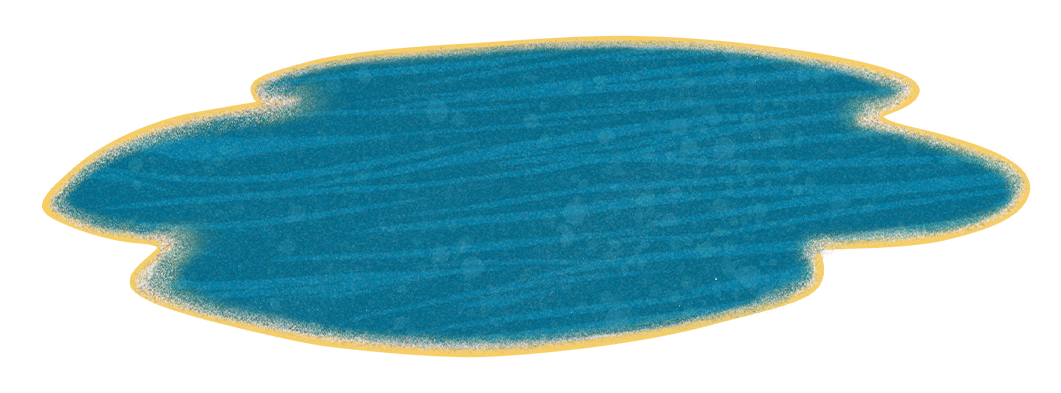


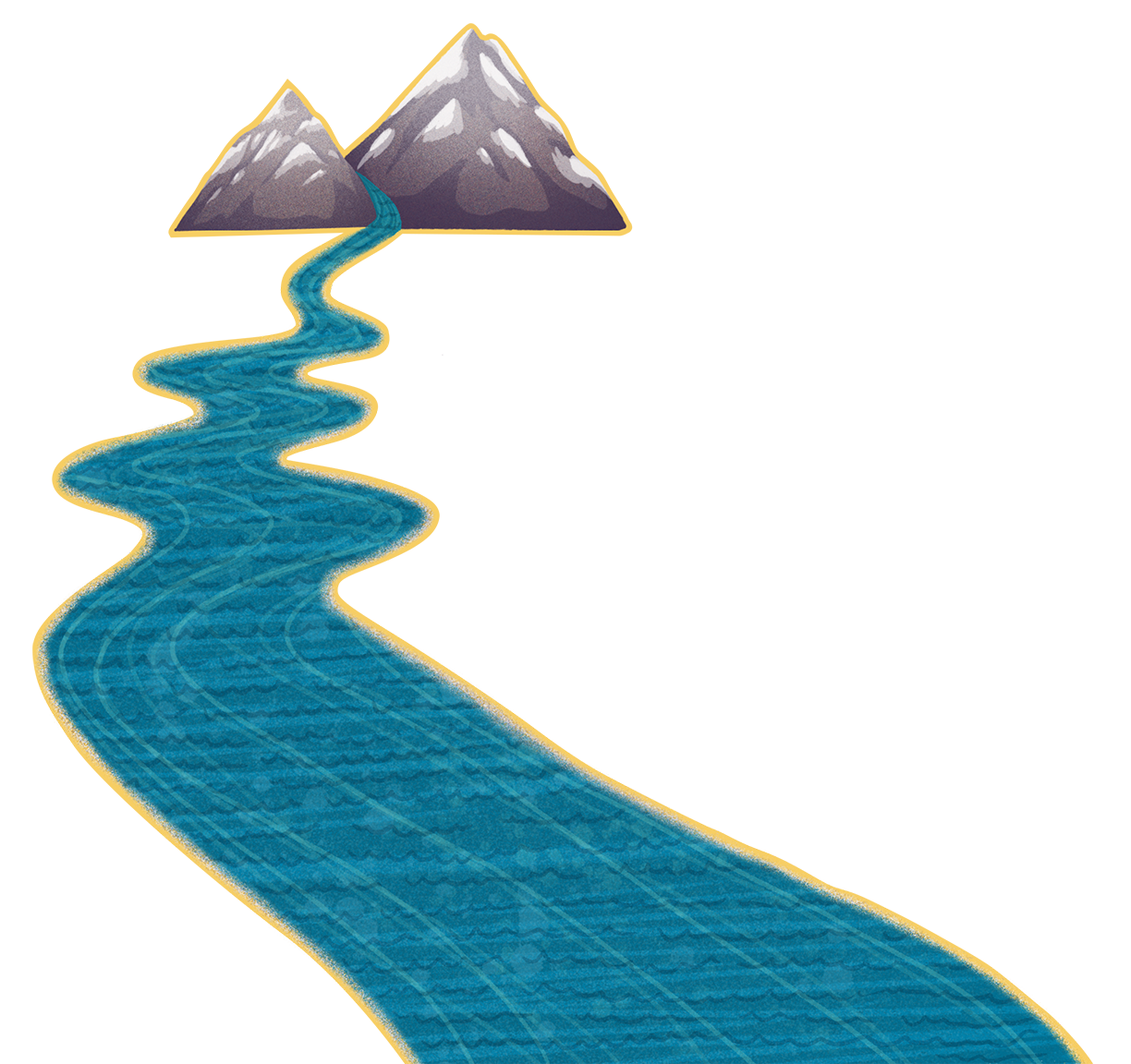
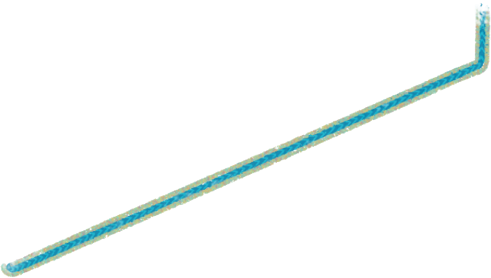
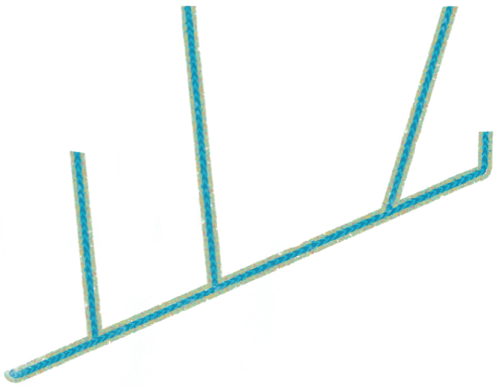
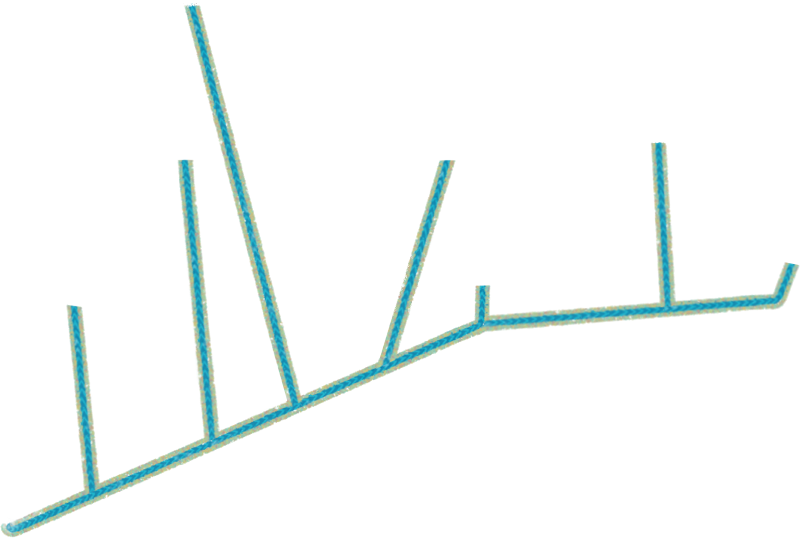
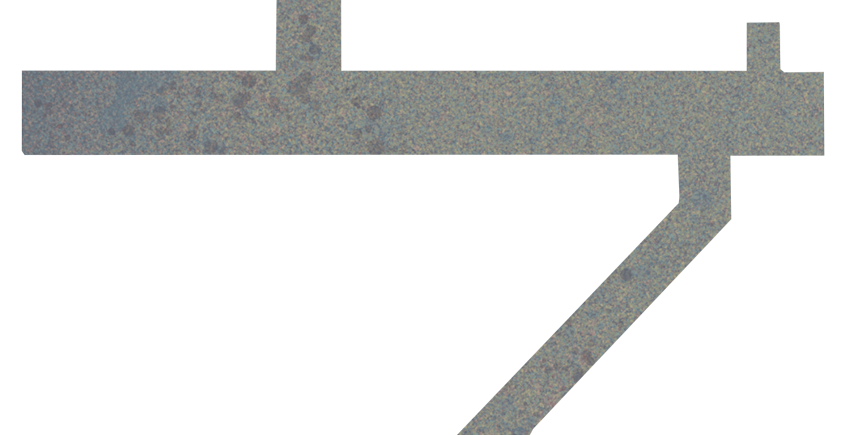
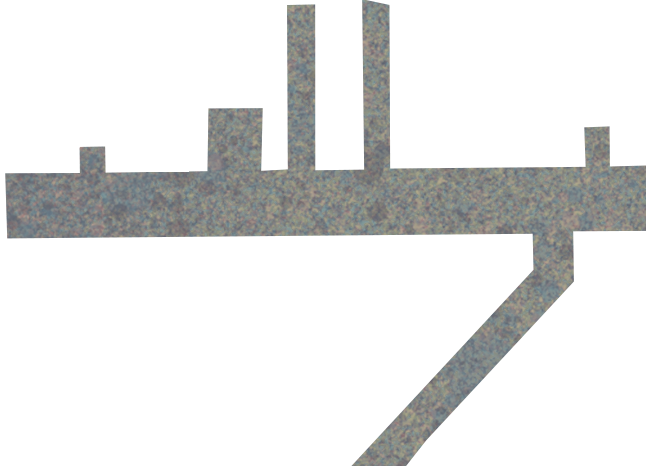
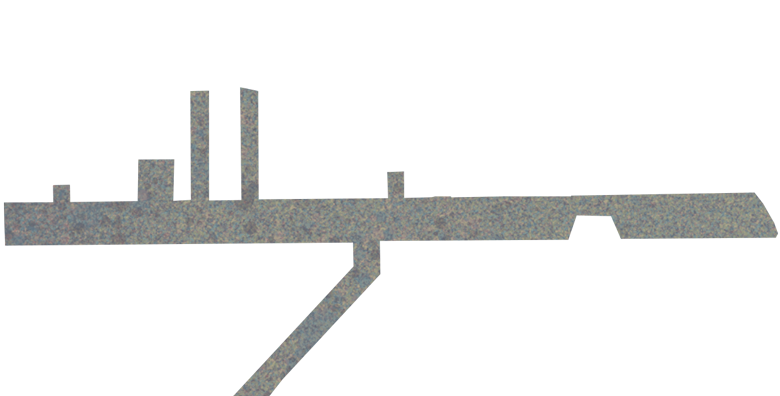
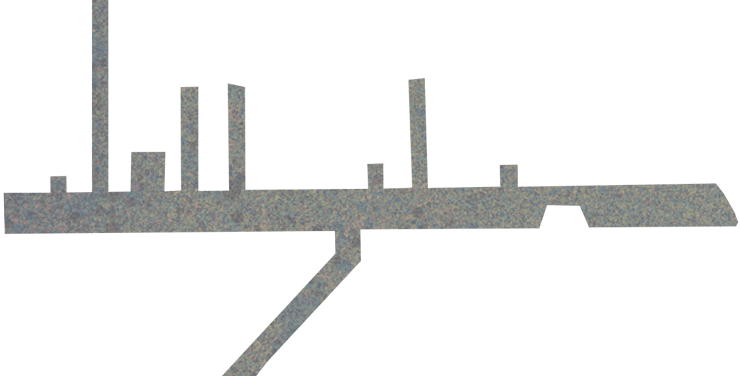
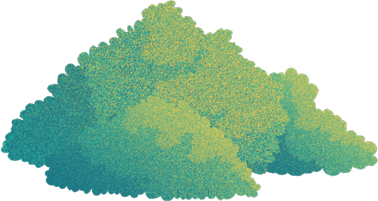
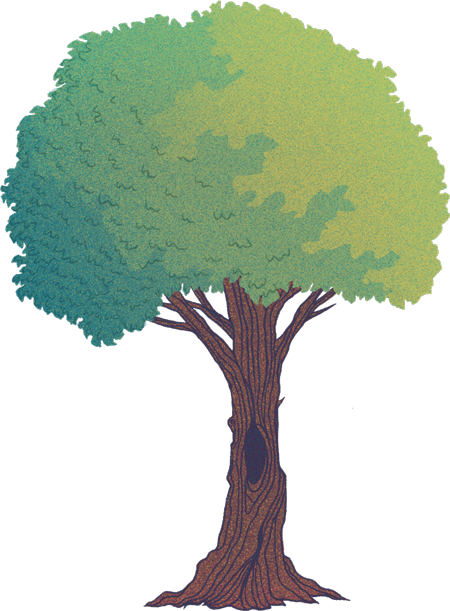

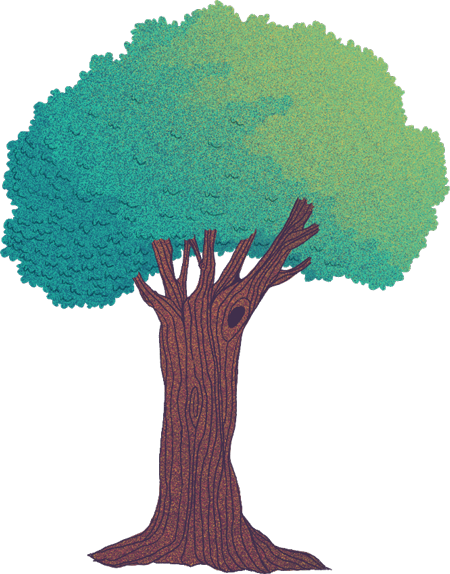

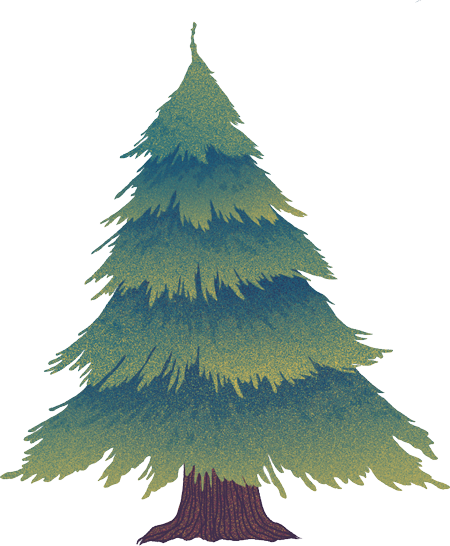
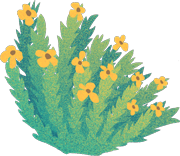






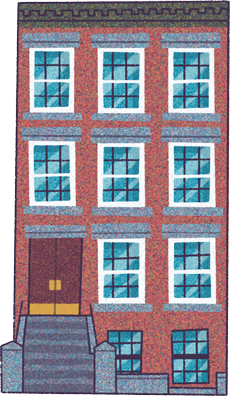
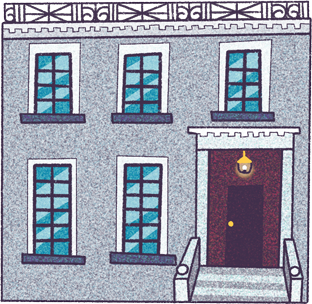


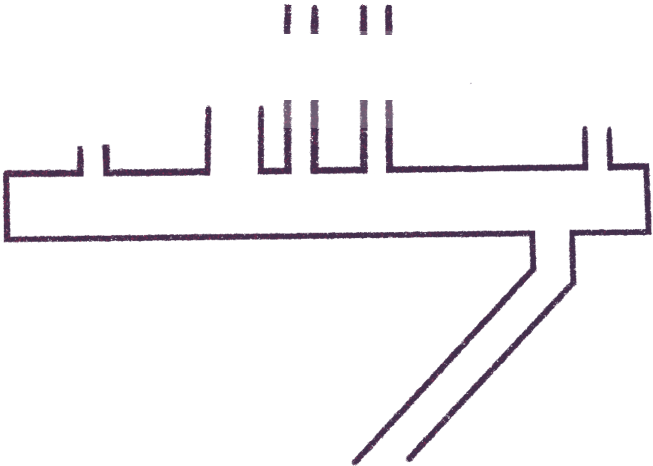
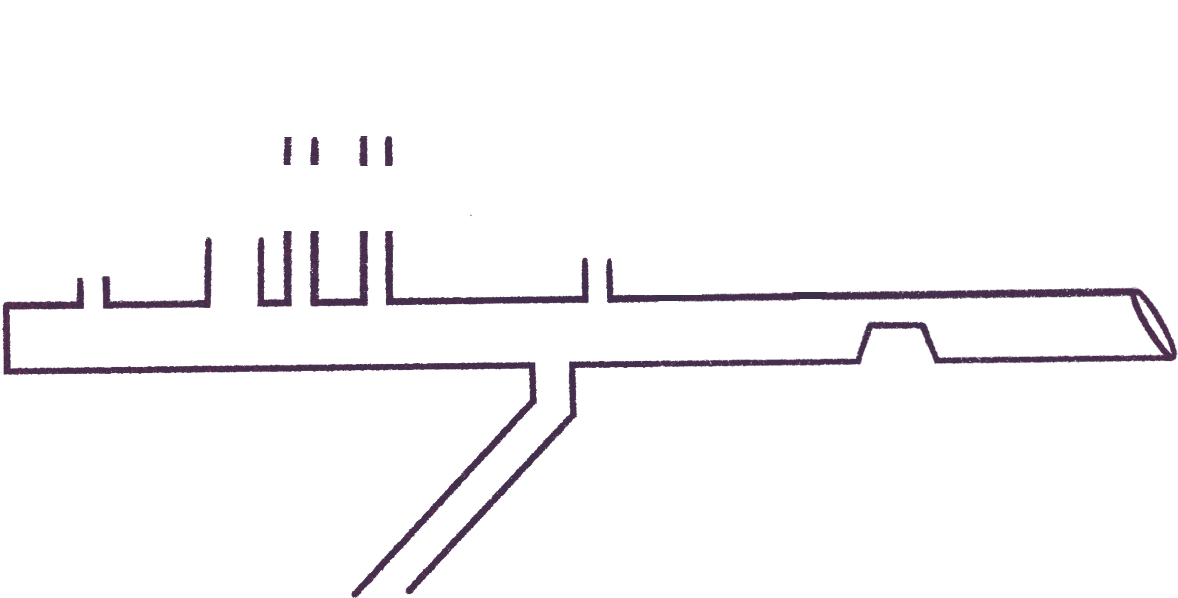


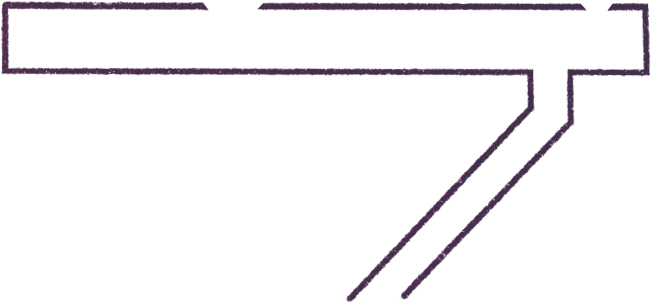
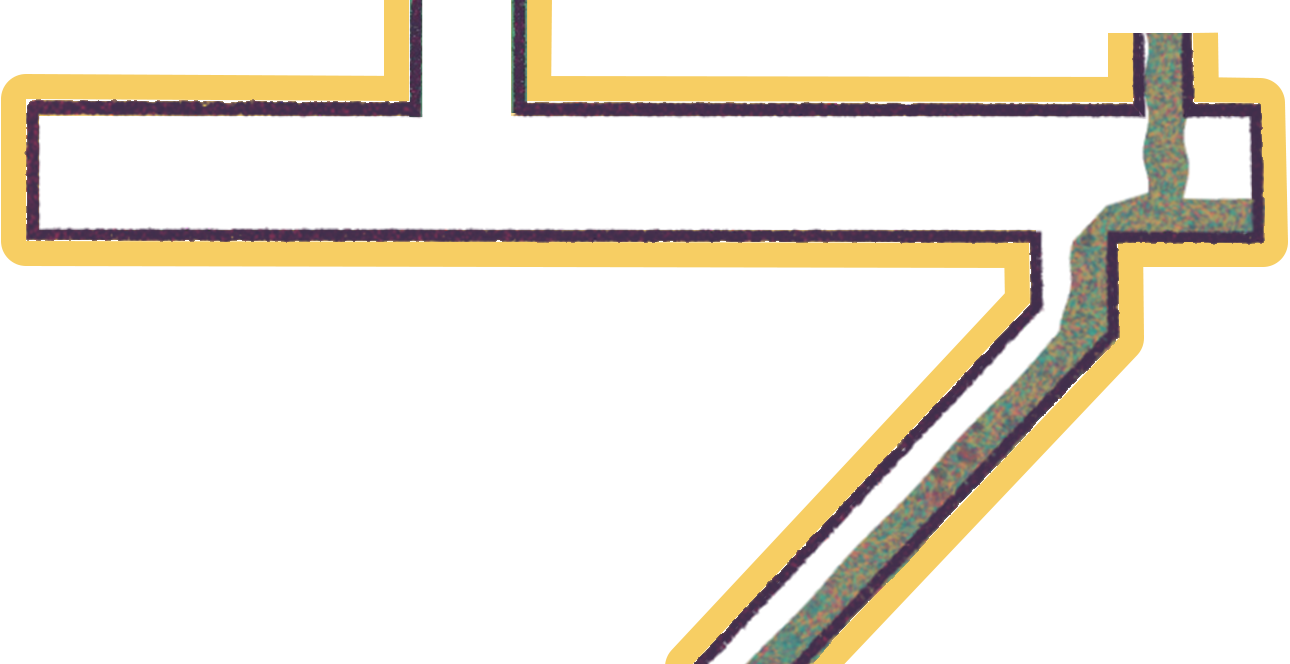
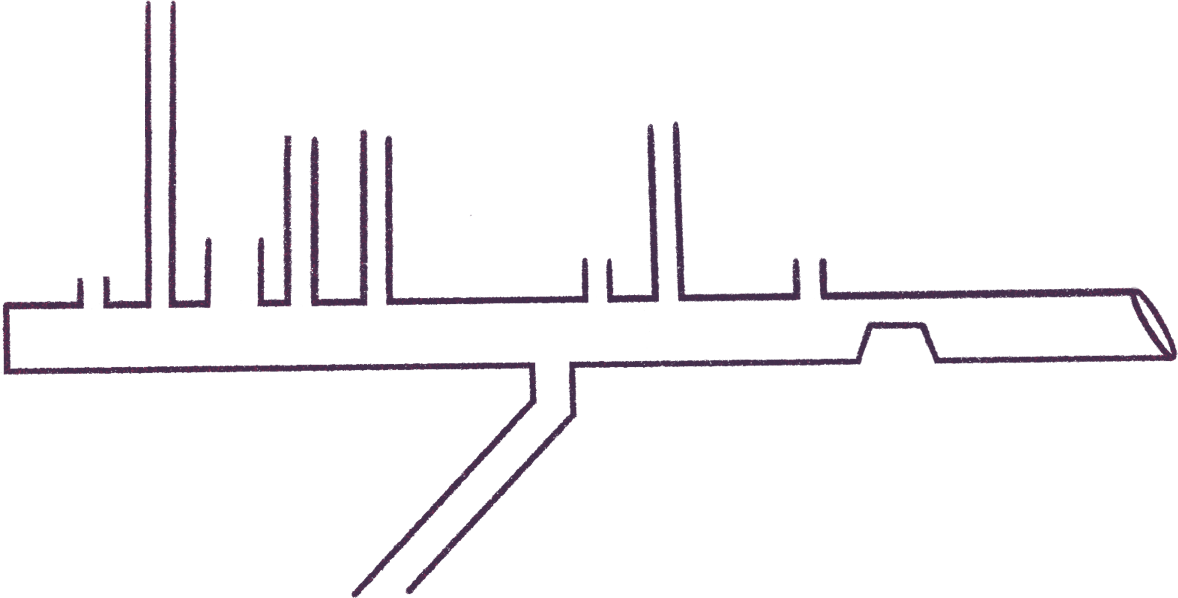




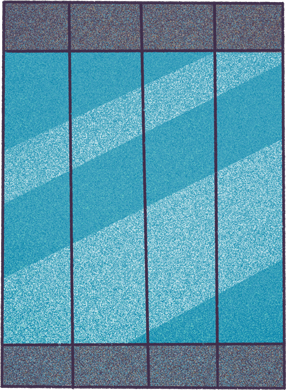
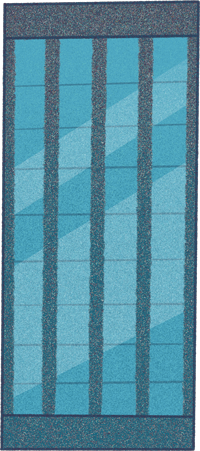


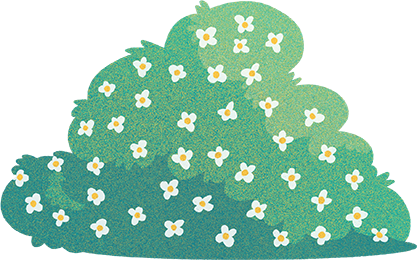


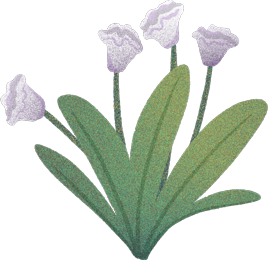



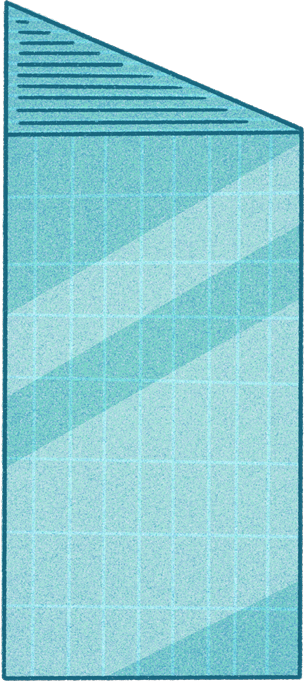
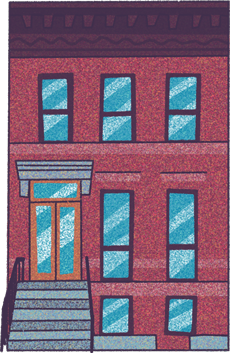



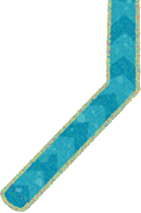

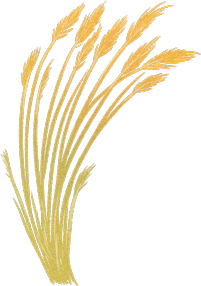


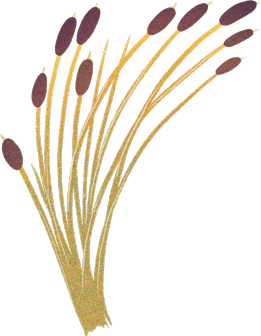































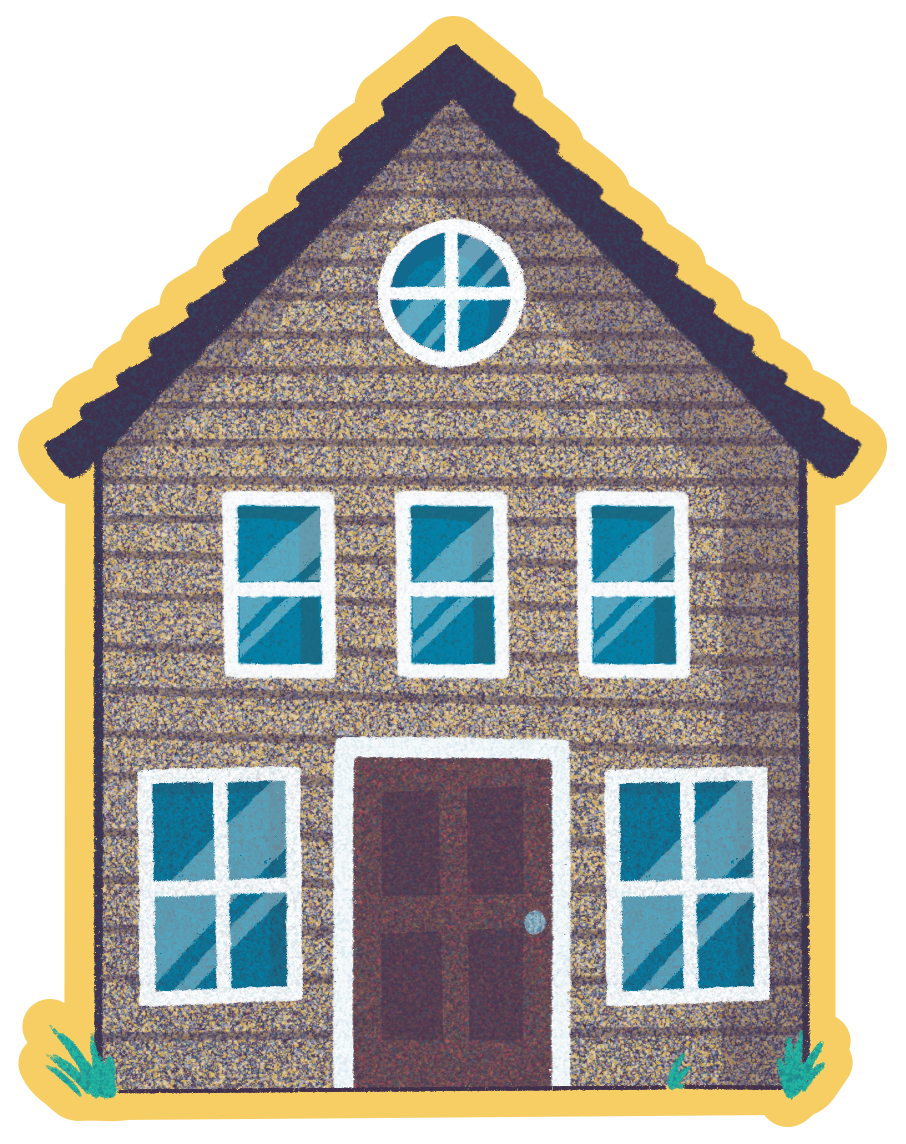









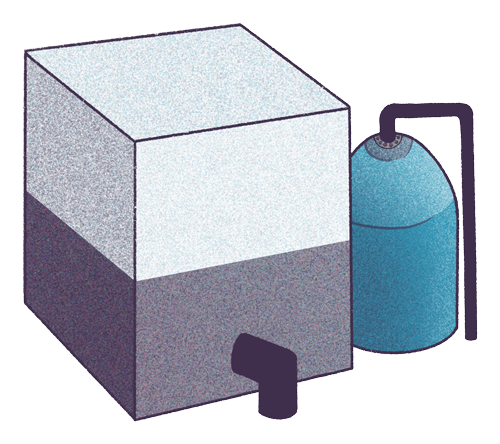
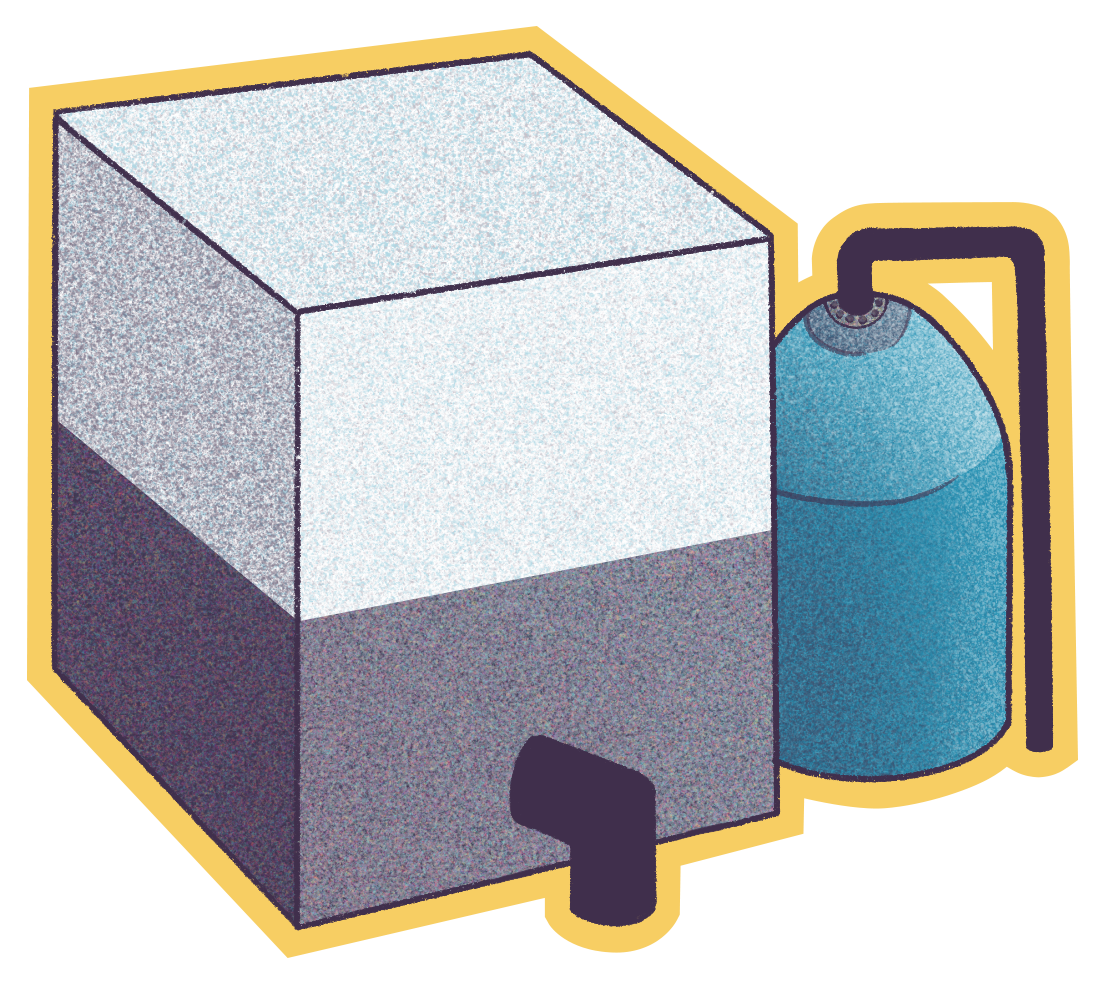
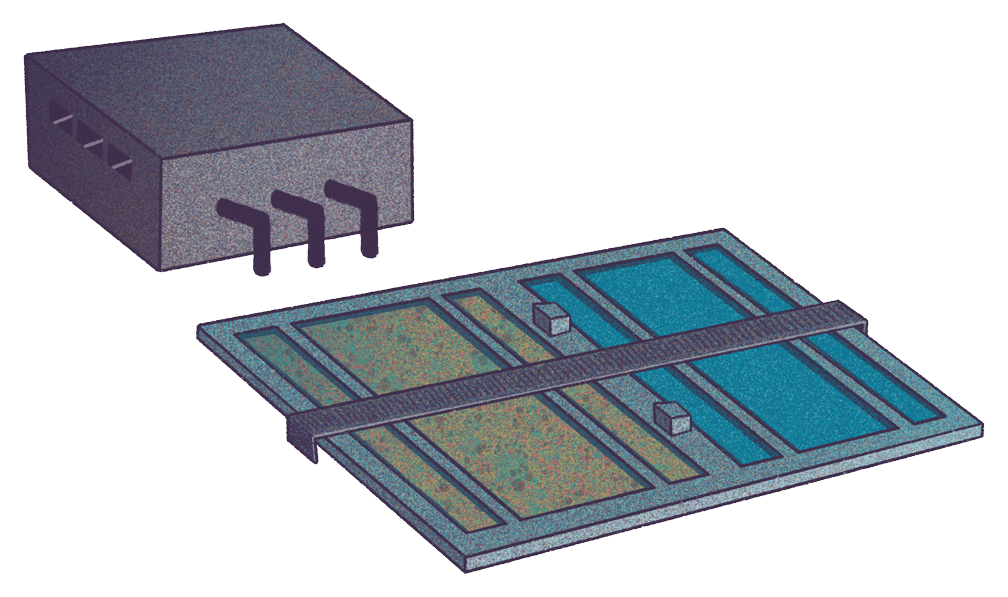
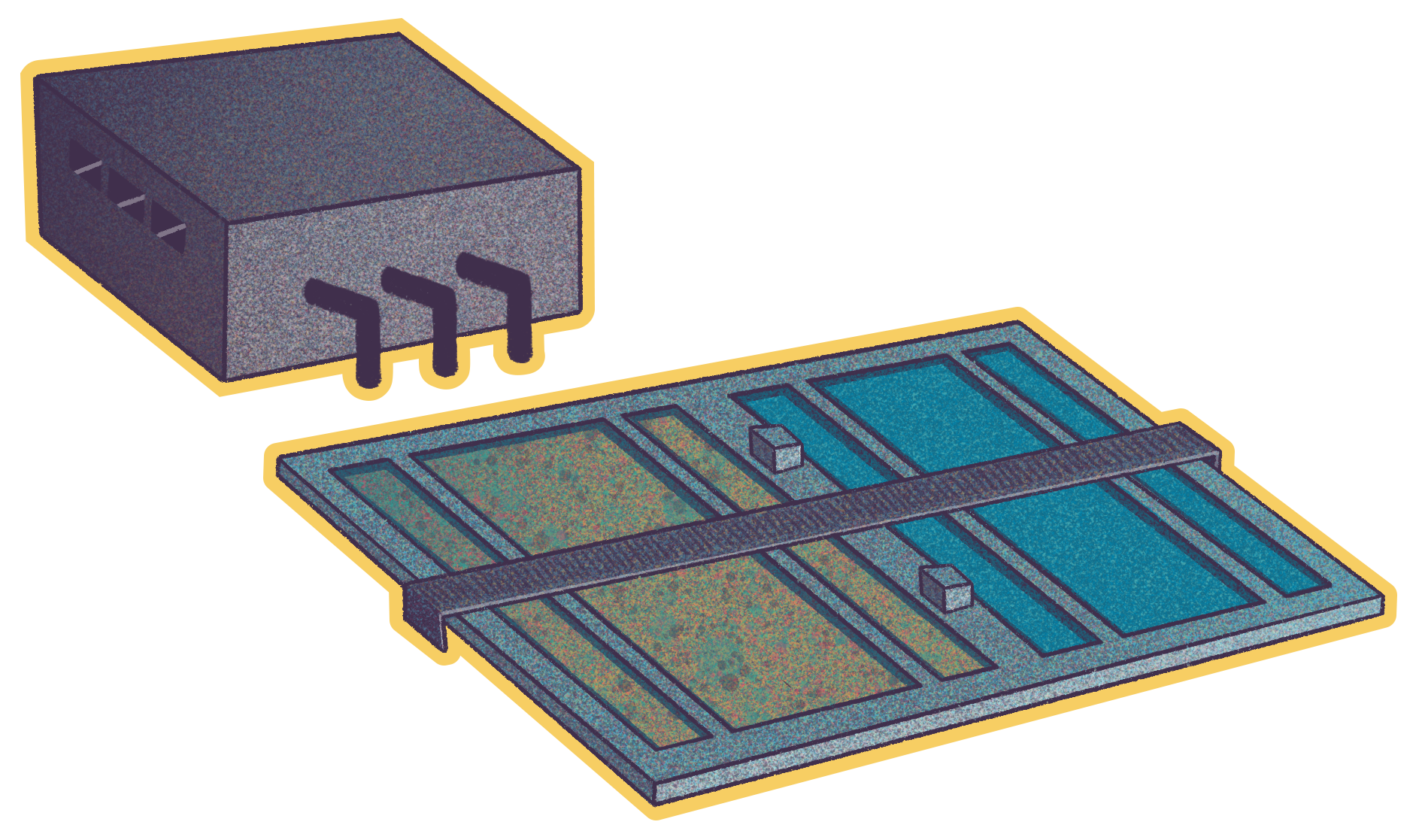
When you are ready to move on, move both sliders to the right.
★ Starting with 1, tap on all the glowing items to learn about each step on water’s journey to you and from you.
Water is always on a journey. The water that comes from your tap starts in natural spaces like this one!
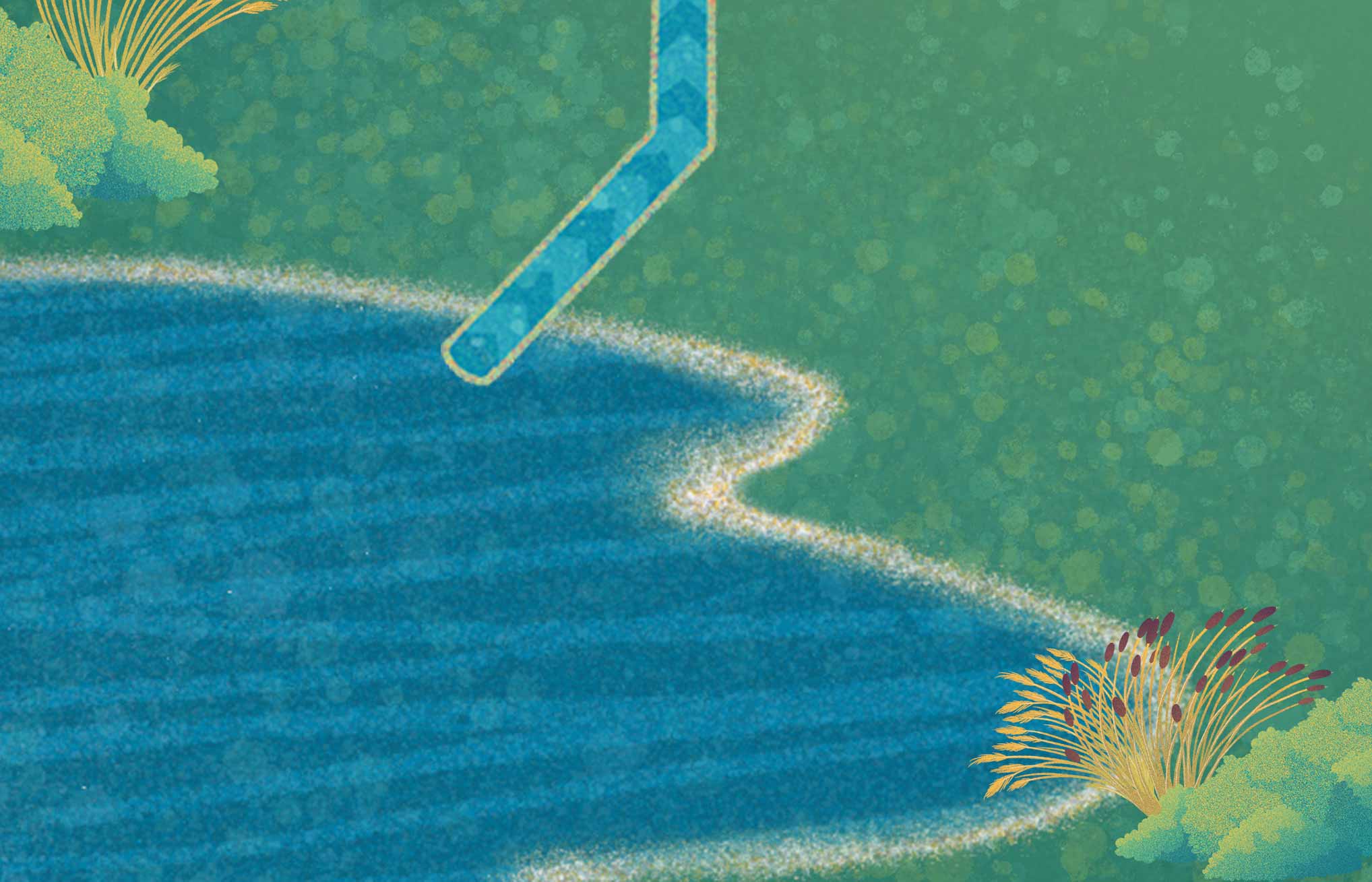
Water treatment plants filter and clean the water so it is safe for people to use.
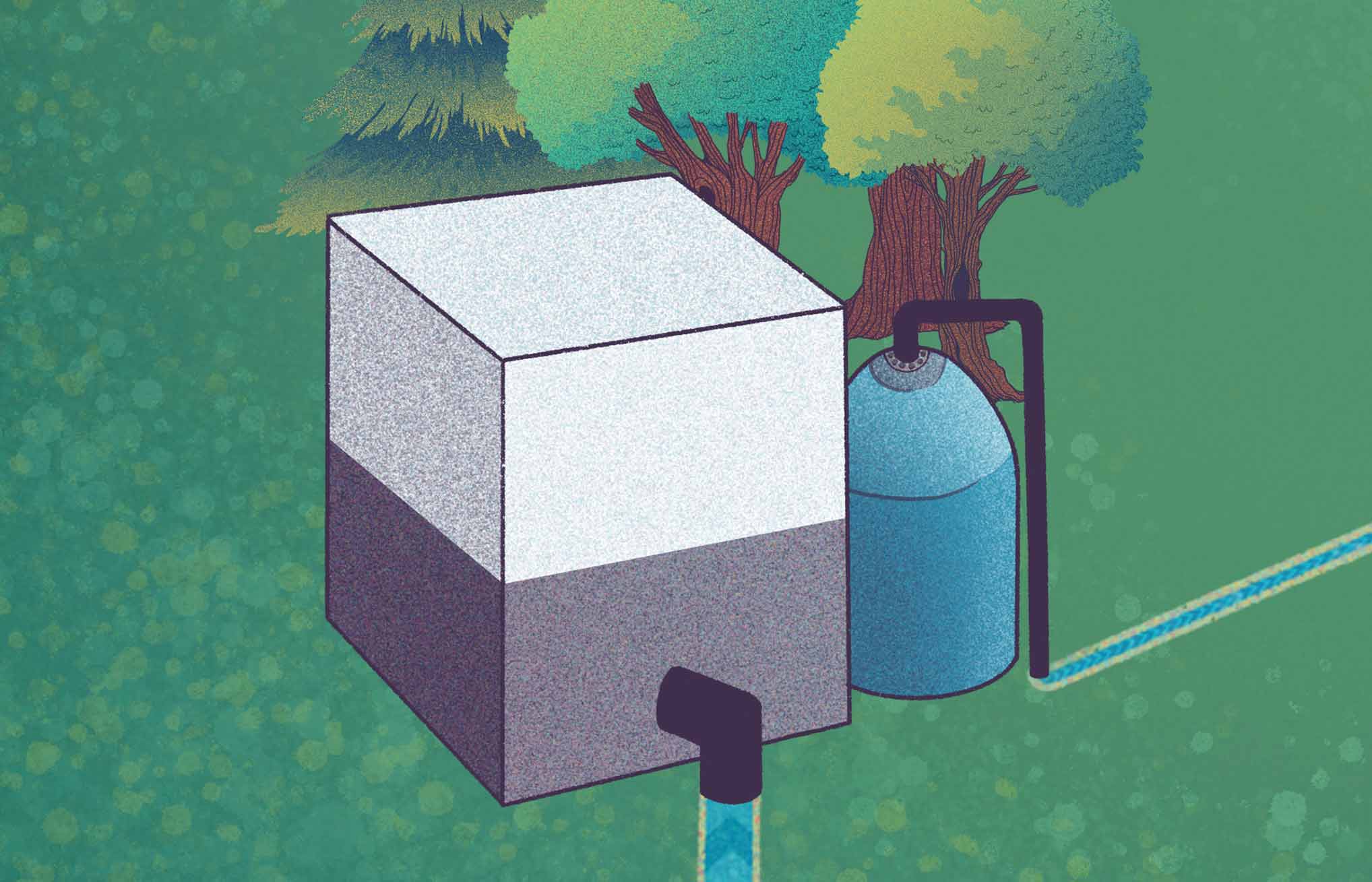
Rain and snow flow into storm drains that also lead to the sewer. Litter on the ground, motor oil leaking from cars, and other pollution get into the sewer through storm drains.
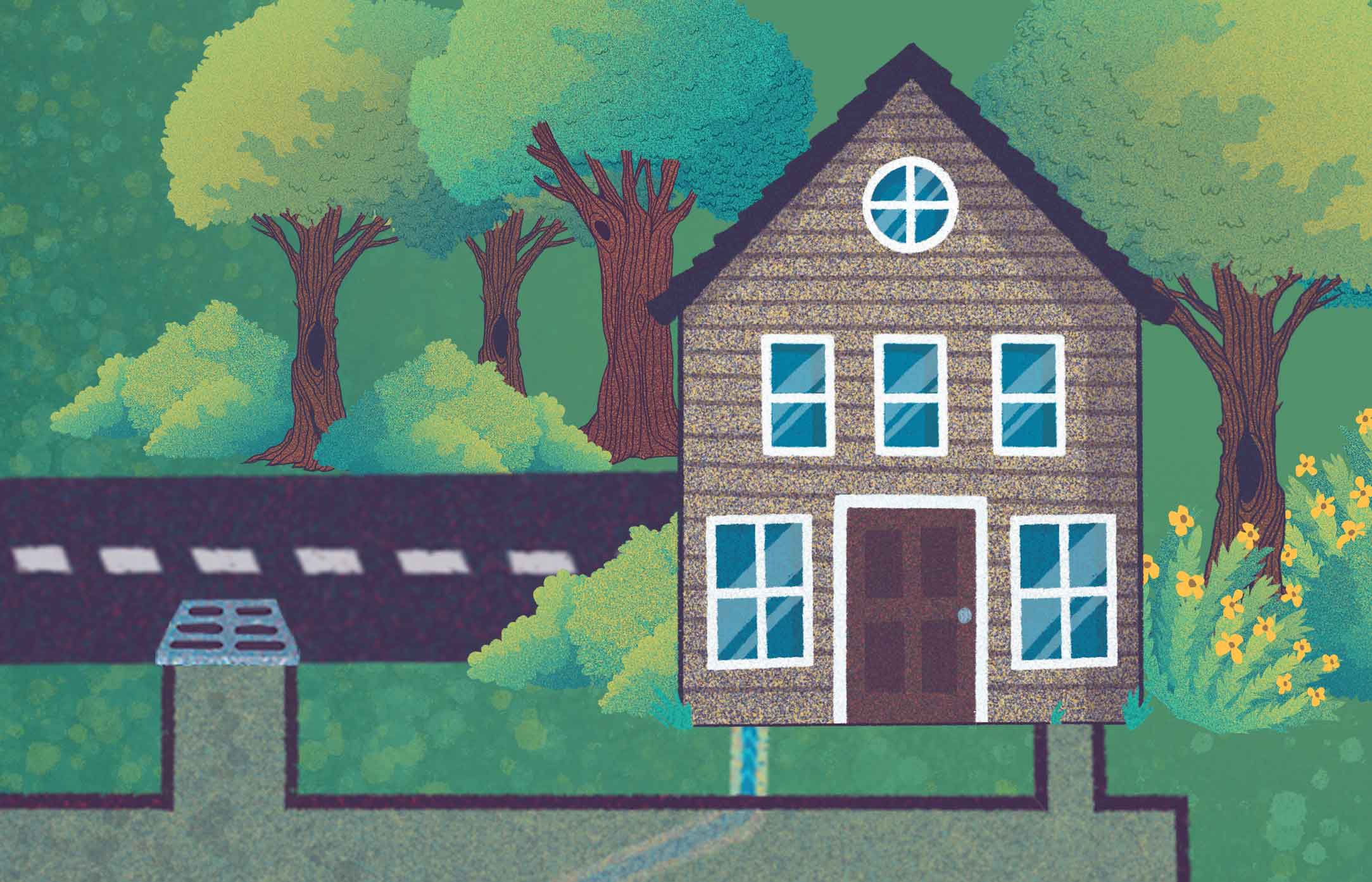
Think of all the ways water can be used in a home: in sinks and bathtubs, in washing machines or dishwashers, in toilets or outdoor hoses.
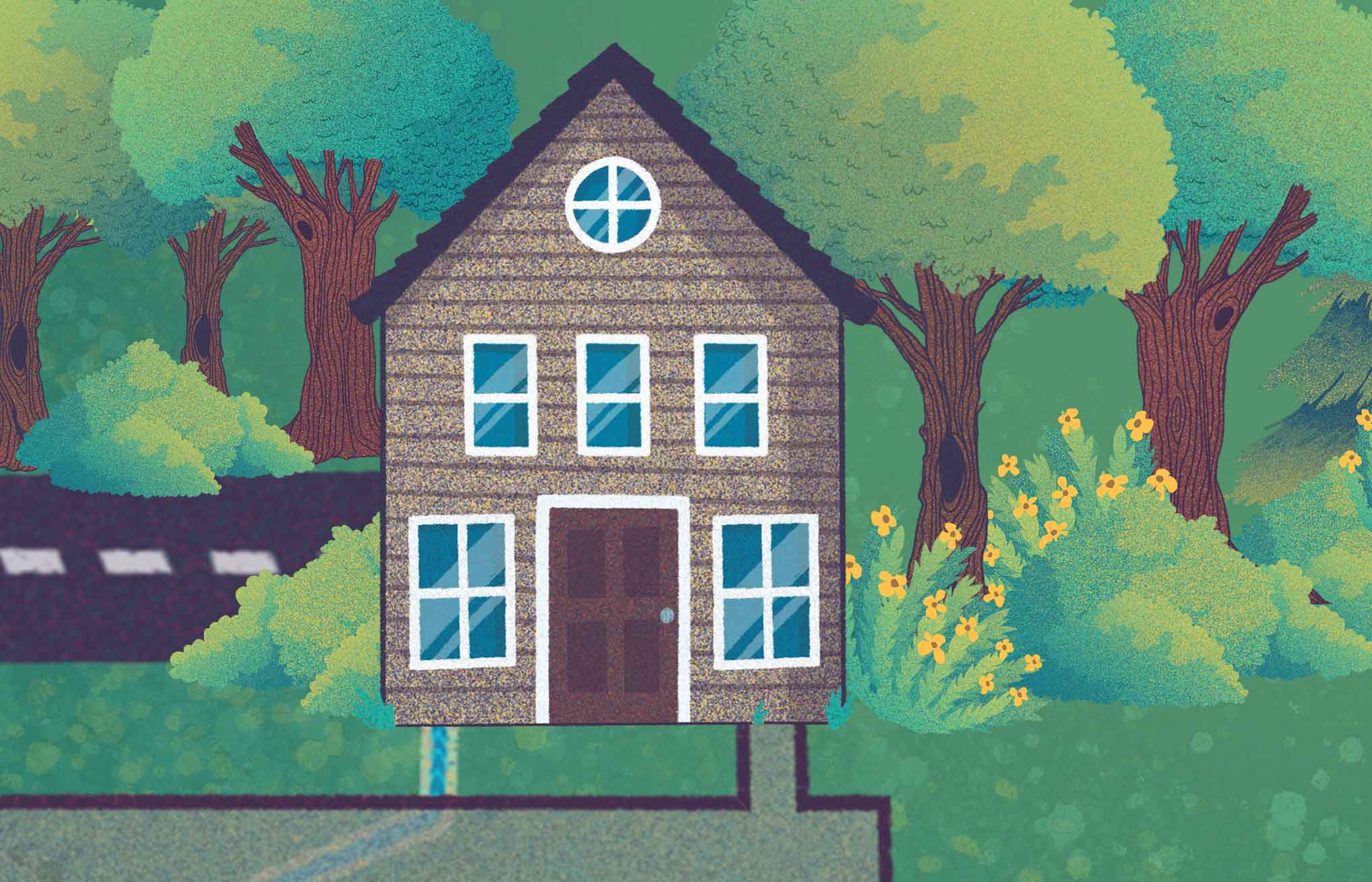
What happens after water goes down the drain? Water flows through waste pipes to a larger sewer underground.
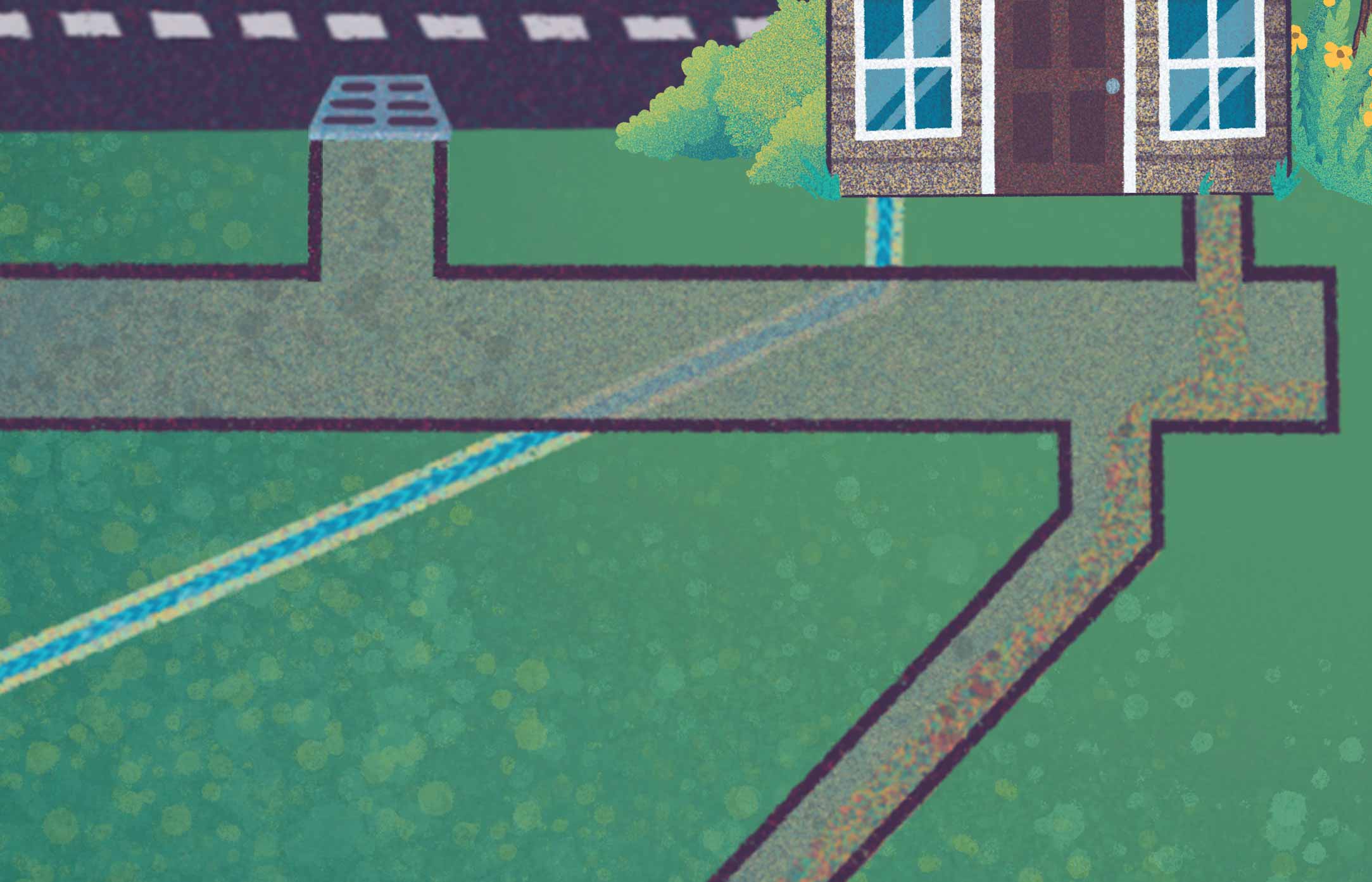
The water in the sewer flows to a sewage treatment plant. It might be far away! The sewage treatment plant cleans the water.
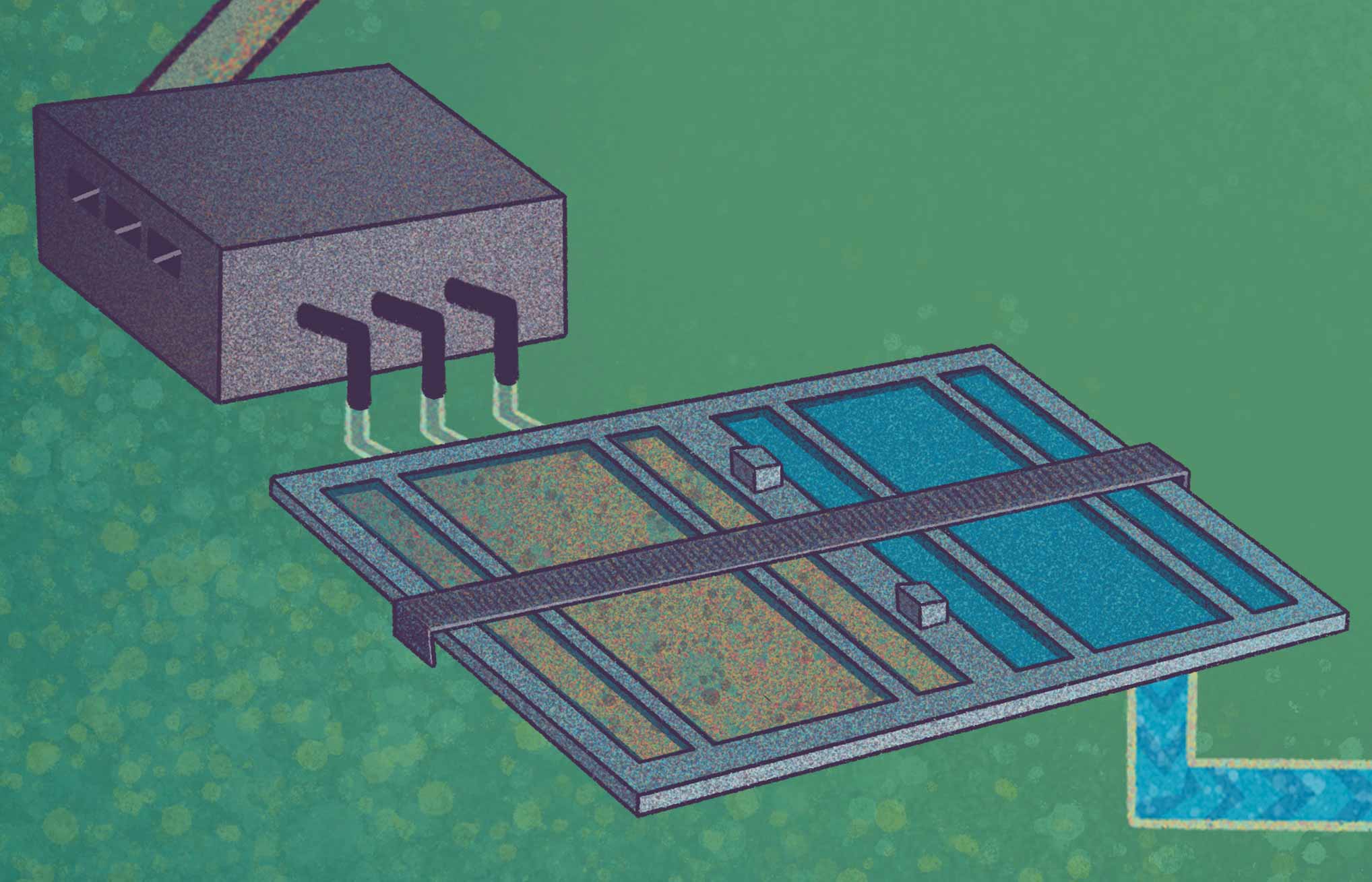
The water gets cleaned, or treated, and is pumped back to nature.
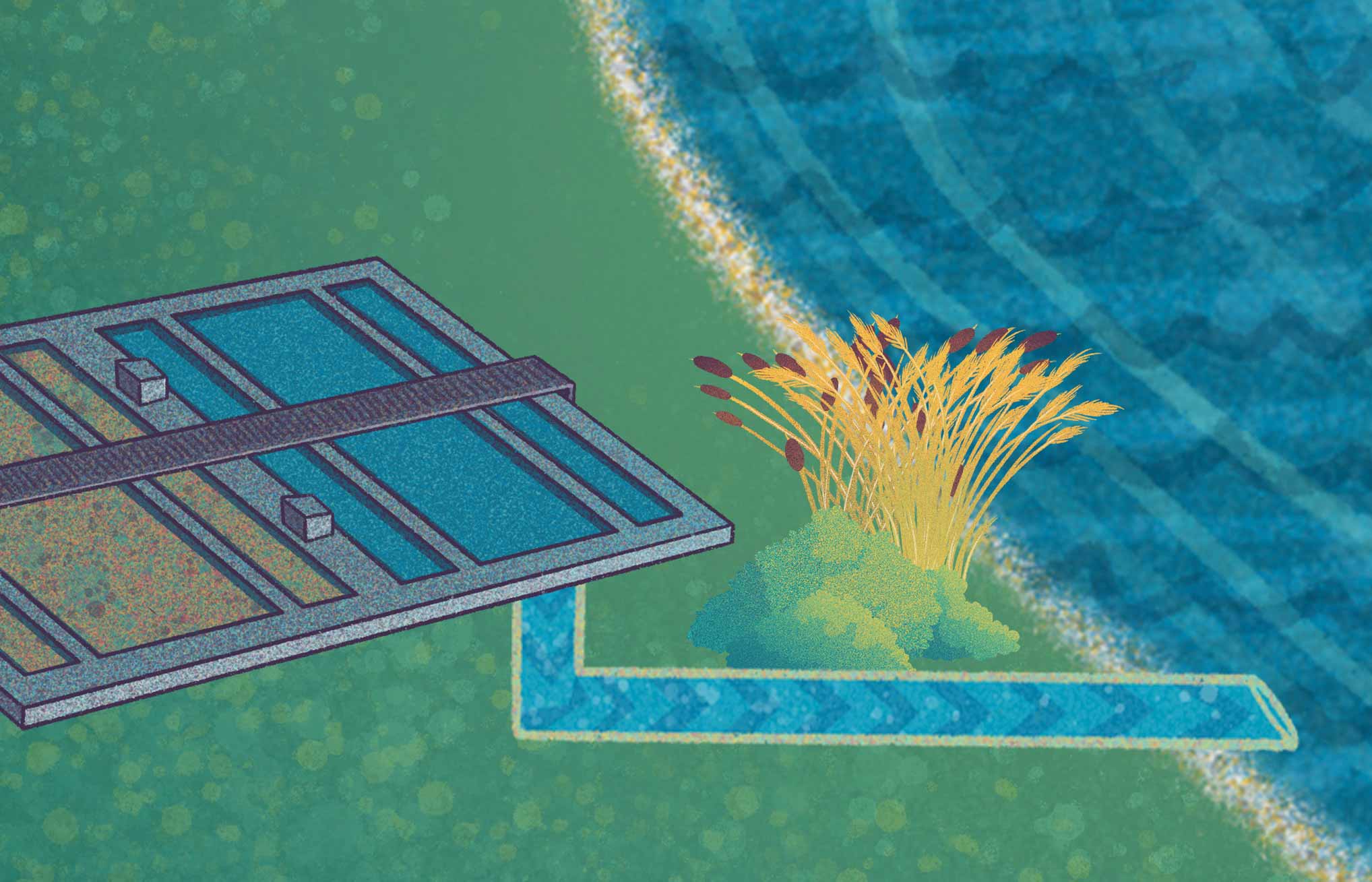
Water goes on a long journey, let's see it in action!


Vocabulary
Adaptation (Noun) : A body part or feature or a behavior that helps a living thing survive and function better in its environment
Adaptation (Noun) : A body part or feature or a behavior that helps a living thing survive and function better in its environment
Air quality index (Noun) : Air Quality Index is a unit used to describe how many particles are in the air.
Alternative transportation (Noun) : Any mode of transportation other than a private car is alternative transportation.
Alternative transportation (Noun) : Any mode of transportation other than a private car is alternative transportation.
Amullae of lorenzini (Noun) : Sensory organs that sharks use to detect electrical signals. This adaptation is also called a sixth sense.
Ampullae of Lorenzini (Noun) : Ampullae of Lorenzini are sensory organs that sharks use to detect electrical signals also referred to as a “sixth sense.”
Anti-idling laws (Noun) : Anti-idling laws are rules that ask drivers to turn thier engines off when their cars, trucks, or buses aren't moving.
Anti-idling laws (Noun) : Anti-idling laws are rules that ask drivers to turn thier engines off when their cars, trucks, or buses aren't moving.
Banana pose (Noun) : The shape harbor seals make when they rest on shore. They lift thier head and tail, making a banana shape.
Biodiverse (Adjective) : Has many different types of organisms in one habitat.
Biodiverse (Adjective) : Has many different types of organisms in one habitat.
Biodiversity (Noun) : The variety of life in a habitat or ecosystem.
Biodiversity (Noun) : The variety of life in a habitat or ecosystem.
Caudal fin (Noun) : Caudal fins provide power, helping sharks swim forward
Carnivores (Noun) : Animals that feed on other animals.
Cilia (Noun) : A tiny, hairlike structure on certain cells.
Claspers (Noun) : Male sharks have two claspers that are used in reproduction. Female sharks do not have them
Coast (Noun) : The part of the land near the water.
Combined sewer overflow (CSO) system (Noun) : A type of sewer system that collects used water from people’s homes and rainwater from storm drains in the same sewer, or pipes, underground.
Combined sewer overflow (CSO) system (Noun) : A type of sewer system that collects used water from people’s homes and rainwater from storm drains in the same sewer, or pipes, underground.
Combined sewer overflow (CSO) system (Noun) : A type of sewer system that collects used water from people’s homes and rainwater from storm drains in the same sewer, or pipes, underground.
Community (Noun) : A community is a group of people who live in the same area.
Community (Noun) : A community is a group of people who live in the same area.
Conservation (Verb) : Conservation is a plan to care for and protect natural resources.
Conserve water (Verb) : Saving water. For example, turning off the tap if you’re not using it conserves water. That stops water from entering the CSO system.
Consumer (Noun) : An organism that gets the energy it needs by eating other organisms.
Crustacean (Noun) : Organism with a hard shell or exoskeleton.
Crustacean (Noun) : Organism with a hard shell or exoskeleton.
Debris (Noun) : Things (such as trash) that have been left somewhere because they are not wanted
Digest (Verb) : To break down food into simpler forms that can be taken in and used by an organism.
Dorsal fin (Noun) : The dorsal fin helps sharks stay upright when they swim.
Drain (Noun) : A pipe that carries water away from people.
Drone (Noun) : A drone is a piece of machinery that is programmed to drive itself. In WaterWays, we talk about a drone that floats on the water and scoops up trash, like a small boat without any people on it
Dune (Noun) : A mound of sand or other sediment formed by the wind, especially on the sea coast.
Ecologist (Noun) : An ecologist is a scientist that studies the relationships between living things and their environment.
Ecologist (Noun) : An ecologist is a scientist that studies the relationships between living things and their environment.
Ecologist (Noun) : An ecologist is a scientist that studies the relationships between living things and their environment.
Ecologist (Noun) : An ecologist is a scientist that studies the relationships between living things and their environment.
Ecologist (Noun) : An ecologist is a scientist that studies the relationships between living things and their environment.
Ecology (Noun) : Ecology is the study of living things and their surroundings, or environment.
Ecology (Noun) : Ecology is the study of living things and their surroundings, or environment.
Ecosystem (Noun) : An ecosystem is all the living organisms and non-living things in a specific place.
Ecosystems (Noun) : Community or group of living organisms that live in and interact with each other in a specific environment
Eelgrass (Noun) : A marine plant with long ribbon-like leaves that grows in brackish water.
Eelgrass (Noun) : A marine plant with long ribbon-like leaves that grows in brackish water.
Engineer (Noun) : An Engineer is a person who designs and builds things that help humans.
Environmental health (Noun) : Environmental health is the combination of clean air, water, and other factors that make a place safe and healthy.
Erosion (Noun) : Gradually wear away soil, rock, or land.
Estuary (Noun) : An estuary is a waterway where salty water and fresh water mix. Estuaries have a lot of nutrients and food for different types of organisms.
Estuary (Noun) : An estuary is a waterway where salty water and fresh water mix. Estuaries have a lot of nutrients and food for different types of organisms.
Estuary (Noun) : An estuary is a waterway where salty water and fresh water mix. Estuaries have a lot of nutrients and food for different types of organisms.
Evert (Verb) : To turn an organ, like a stomach, inside out.
Expel (Verb) : Force something out.
Filter (Verb) : Sort through items.
Filter (Verb) : Sort through items.
Flipper (Noun) : A broad flat limb without fingers, used for swimming by various sea animals such as seals, whales, and turtles.
Flooding (Noun) : Covering land that is normally dry with a large amount of water.
Flooding (Noun) : Covering land that is normally dry with a large amount of water.
Flooding (Noun) : Covering land that is normally dry with a large amount of water.
Food Web (Noun) : A way to show what eats what in an ecosystem.
Gill (Noun) : For organisms that live underwater, gills are the organs they use to take in oxygen from the water.
GPS tag (Noun) : GPS stands for 'Global Positioning System.' A GPS tag sends signals to satellites in space. An animal or object with a GPS tag can be tracked over long distances.
Green infrastructure (Noun) : Green infrastructure is a way of designing and building homes, cities, roads, and outdoor spaces to use environmentally-friendly solutions.
Green infrastructure (Noun) : Green infrastructure is a way of designing and building homes, cities, roads, and outdoor spaces to use environmentally-friendly solutions.
Green spaces (Noun) : Green spaces like parks and gardens absorb rainwater. That stops the rainwater from entering the CSO system
Habitat (Noun) : The natural home of an animal, plant, or other organism.
Harbor seals (Noun) : A seal with a mottled gray-brown coat, found along North Atlantic and North Pacific coasts.
Harbor seals (Noun) : A seal with a mottled gray-brown coat, found along North Atlantic and North Pacific coasts.
Harvest (Verb) : To gather something to eat.
Herbivores (Noun) : Animals that feed off of plants.
Human health (Noun) : Human health is the state of being well physically, mentally, and socially.
Hypothesis (Noun) : An idea or explanation that is based on facts, but has not yet been proven.
Hypothesis (Noun) : An idea or explanation that is based on facts, but has not yet been proven.
Hypothesis (Noun) : An idea or explanation that is based on facts, but has not yet been proven.
Hypothesis (Noun) : An idea or explanation that is based on facts, but has not yet been proven.
Idling (Verb) : Idling is when a car's engine is still running, but the car is not going anywhere.
Idling (Verb) : Idling is when a car's engine is still running, but the car is not going anywhere.
Litter (Noun) : Waste or trash in the wrong place.
Litter (Noun) : Waste or trash in the wrong place.
Litter (Noun) : Waste or trash in the wrong place.
Litter (Noun) : Waste or trash in the wrong place.
Living shoreline (Noun) : A living shoreline is land near the water that stops flooding with plants, sand, and rocks, instead of using hard walls.
Living shoreline (Noun) : A living shoreline is land near the water that stops flooding with plants, sand, and rocks, instead of using hard walls.
Mantle (Noun) : A thin organ that surrounds the oyster’s organs like skin. The mantle makes the oyster’s shell.
Microscopic organism (Noun) : A living thing that can only be seen with a microscope.
Microscopic organism (Noun) : A living thing that can only be seen with a microscope.
Migrate (Verb) : To move from one region to another according to the seasons.
Mollusk (Noun) : Animals that have a soft body and no spine. Many have an external shell covering their bodies.
Mollusk (Noun) : Animals that have a soft body and no spine. Many have an external shell covering their bodies.
Native trees (Noun) : Native trees are any species of tree that are found in an area naturally, or without people planting them there.
Nature-based solutions (Noun) : Ideas inspired by nature.
Nature-based solutions (Noun) : Ideas inspired by nature.
Nature-based solutions (Noun) : Ideas inspired by nature.
Neighborhood (Noun) : Part of a town or city.
Neighborhood (Noun) : Part of a town or city.
Neighborhood (Noun) : Part of a town or city.
Observation (Noun) : Gathering information by carefully watching or recording events.
Observation (Noun) : Gathering information by carefully watching or recording events.
Observation (Noun) : Gathering information by carefully watching or recording events.
Observation (Noun) : Gathering information by carefully watching or recording events.
Oil slick (Noun) : A thin layer of oil, like motor oil, floating on water.
Omnivores (Noun) : Animals that feed on both plants and animals.
Outfall (Noun) : The place in a CSO system where wastewater and litter from a sewer pipe goes into nature.
Outfall (Noun) : The place in a CSO system where wastewater and litter from a sewer pipe goes into nature.
Outfall (Noun) : The place in a CSO system where wastewater and litter from a sewer pipe goes into nature.
Outflow (Noun) : Something that flows out
Outflow (Noun) : Something that flows out
Oyster (Noun) : Mollusks with two rough, irregular shells.
Oyster (Noun) : Mollusks with two rough, irregular shells.
Oyster reef (Noun) : Oyster reefs are large clusters of oysters. They form as oysters grow up and stick together on underwater rocks.
Particle (Noun) : A very tiny piece of something is called a particle.
Particle (Noun) : A very tiny piece of something is called a particle.
Pectoral fins (Noun) : The pectoral fins help sharks swim up and down.
Permeable surface (Noun) : Permeable surfaces are materials like gravel and grass, which let rainwater soak into the ground.
Permeable surface (Noun) : Permeable surfaces are materials like gravel and grass, which let rainwater soak into the ground.
Phytoplankton (Noun) : Microscopic organisms that drift in water and get thier energy from the sun.
Phytoplankton (Noun) : Microscopic organisms that drift in water and get thier energy from the sun.
Pick up litter (Verb) : Picking up plastic litter from the street prevents it from being carried into storm drains and through the CSO system!
Plankton (Noun) : Microscopic organisms that drift in the sea or fresh water. Some examples of plankton are diatoms, protozoans, small crustaceans, and the eggs and larval stages of larger animals. Many animals feed on plankton, especially by filtering them from the water.
Plankton (Noun) : Microscopic organisms that drift in the sea or fresh water. Some examples of plankton are diatoms, protozoans, small crustaceans, and the eggs and larval stages of larger animals. Many animals feed on plankton, especially by filtering them from the water.
Predatory (Noun) : Animals that prey on other animals.
Prediction (Noun) : A statement about what will happen in the future.
Producer (Noun) : An organism that gets its energy from the sun, and makes its own food from simple substances such as water and carbon dioxide.
Rain barrel (Noun) : A rain barrel is a water tank that catches and stores rain water.
Rain barrel (Noun) : A rain barrel is a water tank that catches and stores rain water.
Rain gauge (Noun) : A rain gauge is a device used to measure the amount of rainfall in an area.
Reclaim (Verb) : To take plastic that was littered or thrown in the garbage and find a way to use it.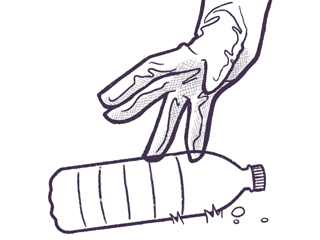
Reclaim (Verb) : To take plastic that was littered or thrown in the garbage and find a way to use it.
Recover (Verb) : Get as much use out of materials as possible, even when it can’t be used for its original purpose.
Example:If materials can’t be reused or recycled, some can be used to make electricity or fuel.
Recover (Verb) : Get as much use out of materials as possible, even when it can’t be used for its original purpose.
Example:If materials can’t be reused or recycled, some can be used to make electricity or fuel.
Recycle (Verb) : Separate plastic from other trash so that it can be remade into new products.
Recycle (Verb) : Separate plastic from other trash so that it can be remade into new products.
Reduce (Verb) : Use less plastic.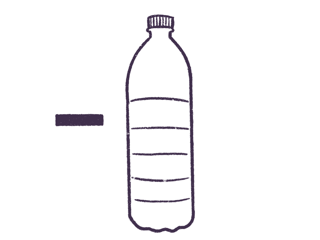
Reduce (Verb) : Use less plastic.
Reef (Noun) : A pile of rock, sand, and sometimes oyster shells near the surface of the sea.
Reef (Noun) : A pile of rock, sand, and sometimes oyster shells near the surface of the sea.
Reflective paint (Noun) : Reflective paint is a type of paint which can bounce sunlight away from surfaces like a rooftop and keep buildings cool.
Reflective paint (Noun) : Reflective paint is a type of paint which can bounce sunlight away from surfaces like a rooftop and keep buildings cool.
Reform (Verb) : To change the rules about how we use and throw away plastic.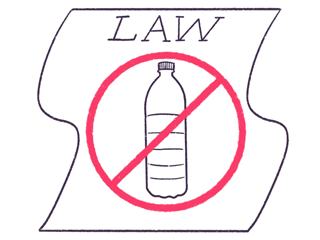
Reform (Verb) : To change the rules about how we use and throw away plastic.
Refuse (Verb) : Say 'no thank you' to plastic products.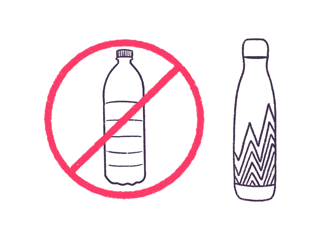
Refuse (Verb) : Say 'no thank you' to plastic products.
Reuse (Verb) : Use an item more than once.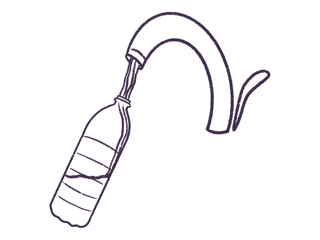
Reuse (Verb) : Use an item more than once.
Roof garden (Noun) : A roof garden is a garden made on a rooftop to improve air quality and lower temperature.
Roof garden (Noun) : A roof garden is a garden made on a rooftop to improve air quality and lower temperature.
Rows of teeth (Noun) : Shark teeth grow in rows. Smaller teeth at the back grow bigger and move up to replace teeth lost while hunting and eating.
Science poster (Noun) : A science poster is a poster that scientists make to share their research with others. It usually has a mix of images, graphs, and text.
Seagrass (Noun) : A grasslike plant that lives in or close to the sea.
Seal (Noun) : A marine mammal with a streamlined body and flippers for feet, that spends time in the water to travel and hunt for prey, and time on land to breed or rest.
Seal (Noun) : A marine mammal with a streamlined body and flippers for feet, that spends time in the water to travel and hunt for prey, and time on land to breed or rest.
Sediment (Noun) : Particles, such as sand, in water that will eventually settle at the bottom of the waterway.
Sewage (Noun) : The used water and waste that flows down the drain or toilet from homes and businesses.
Sewage (Noun) : The used water and waste that flows down the drain or toilet from homes and businesses.
Sewage (Noun) : The used water and waste that flows down the drain or toilet from homes and businesses.
Sewage (Noun) : The used water and waste that flows down the drain or toilet from homes and businesses.
Sewage treatment plant (Noun) : A place where wastewater is cleaned before it gets pumped back to nature.
Sewer (Noun) : The pipe underground that carries used water and waste away from homes and businesses.
Sewer (Noun) : The pipe underground that carries used water and waste away from homes and businesses.
Sewer (Noun) : The pipe underground that carries used water and waste away from homes and businesses.
Shell (Noun) : Oysters make their shells using ingredients from their mantle and from the water around them. Oyster shells get bigger over time.
Shell (Noun) : Oysters make their shells using ingredients from their mantle and from the water around them. Oyster shells get bigger over time.
Skin (Noun) : Shark skin is covered in V-shaped scales, which helps them swim quickly and silently!
Sturgeon (Noun) : Sturgeon are an endangered species of fish which have existed for millions of years. They can grow up to 15 feet long, and are armored with rows of bony plates along their body. When they're young, they live in estuary waters and when they're older, they move to the oceans!
Substrate (Noun) : The surface or material which an organism lives, grows, or obtains its nourishment from.
Sustainable development (Noun) : Sustainable development is the process which aims to improve life for humans, without exhausting natural resources like fossil fuels.
Thermometer (Noun) : A thermometer is a device used to measure the current temperature of the surrounding area.
Tide (Noun) : The rising and falling of the sea due to the attraction of the moon and sun.
Tree (Noun) : Trees have long roots that can absorb excess water, their leaves can trap air pollution particles, and their shadow provides cool shade.
Turbidity (Noun) : A measure of how clear or cloudy water is. Clear water has low turbidity, and cloudy water that is hard to see through has high turbidity.
Turbidity (Noun) : A measure of how clear or cloudy water is. Clear water has low turbidity, and cloudy water that is hard to see through has high turbidity.
Urban heat island effect (Noun) : The Urban Heat Island Effect is a name for the observation that cities are often hotter than other areas. This happens because the materials in buildings and roads absorb heat, and there are not as many plants and trees to cool the air.
Water treatment plant (Noun) : A water treatment plant is a place where water is filtered and cleaned so it is safe for people to use.